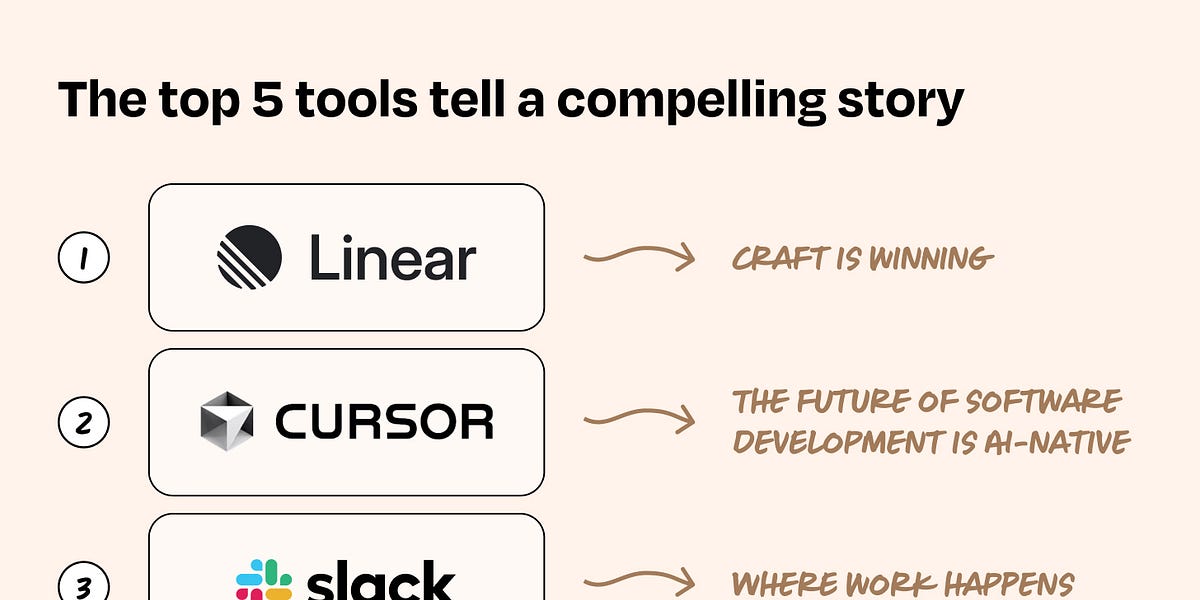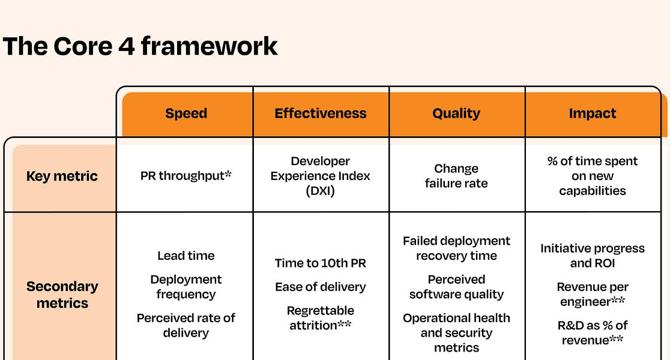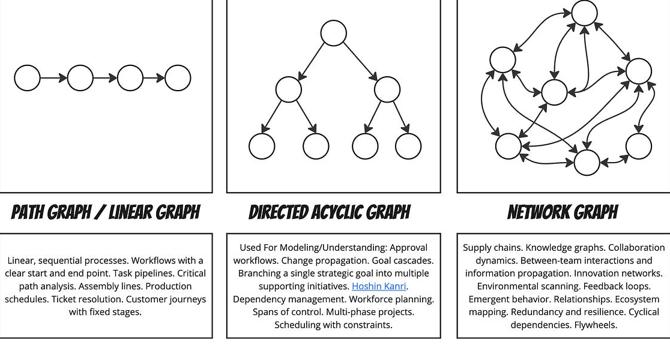Productivity News
Minis
2.2k

Image Credit: Minis
How to nail your job interview, according to an ex-Microsoft HR executive
- Former Microsoft HR executive Sabina Nawaz, now an executive coach, shares key tips for acing job interviews. Avoid basic mistakes like poor punctuality, improper virtual setups, or skipping a follow-up “thank you.”
- When asked about strengths, avoid generic answers like “I’m smart.” Instead, identify unique traits through 20-30 examples of achievements, then frame them as stories. Focus equally on the problem and your solution, highlighting results.
- For example, showcase how your actions led to tangible outcomes, like securing a million-dollar client. Curate a “story library” to answer various interview questions effectively, reflecting your strengths and value.
Read Full Article
45 Likes
Minis
1.8k

Image Credit: Minis
5 tips that make top candidates stand out from other applicants in a tough job market
- Tailor Your Résumé: Align your résumé closely with the job description, emphasizing relevant experience and measurable impact.
- Apply Quickly: Submit applications within the first 24 hours to maximize visibility, and use referrals if possible.
- Reach Out: Message recruiters or hiring managers to express enthusiasm and highlight your fit for the role.
- Showcase Your Work: Create a portfolio, short video, or deck to bring your skills to life, especially for career changers.
- Project Confidence: Speak assertively in interviews and follow up with thank-you notes or additional ideas to leave a lasting impression.
Read Full Article
21 Likes
Lenny's Newsletter
285

Image Credit: Lenny's Newsletter
What’s in your stack: The state of tech tools in 2025
- The results of a large-scale Stack Survey by Lenny Rachitsky suggest some exciting trends to expect in the tech world. The survey draws from 6,500+ participants with 50% being in the product area. Some key highlights are rapidly emerging AI-native development environments such as Cursor and other tools like vO, Bolt, and Replit that quickly gain popularity over traditional coding tools. ChatGPT is the most significant shift in the product team tool stack, used by 90% of respondents. Second, Slack is the dominant tool for communication, used by 72% of participants. Third, Jira tops the project management list but is quickly losing to Linear, used by 10% of participants, for its user experience. 97% of designers use Figma as their primary design tool while Canva is catching up and rising in popularity for non-designers.
- Notion is playing a clever game and gaining traction as a CRM, project management, and documentation tool. Google Docs is still a go-to for collaboration, but Notion is catching up. The analytics battle is becoming a few power players vs. an army of the Davids, among which is Tableau, Looker, Amplitude, and Mixpanel. HubSpot has stepped in Salesforce’s gap with its more accessible and intuitive UI. Miro remains the leader, but its dominance in virtual whiteboarding is being challenged by newcomer FigJam. Slack is at par with Zendesk, which dominates the customer support landscape. Finally, Gmail still stands second in overall popularity rankings, but Typeform is climbing up by reimagining a tired survey format.
- With AI tools becoming essential and as ubiquitous as having a laptop, respondents are increasingly willing to sacrifice deep functionality for tools that are easier to use and offer creative flexibility in traditional spaces, from whiteboarding to presentations. Savvy teams and individuals are mixing and matching tools within the same space, choosing the perfect one for each nuanced context and need. As shiny object syndrome is impossible to avoid, people in tech are always on the lookout for better tools that offer the perfect mix of features and usability.
Read Full Article
16 Likes
Minis
176.7k

Image Credit: Minis
Salary expectations in 2025: 5 Things recruiters want to hear
- Market Awareness: Demonstrate your knowledge of industry standards and current trends in salary expectations.
- Flexibility: Show openness to negotiate based on benefits, growth opportunities, and company budget.
- Value Alignment: Highlight how your skills and experience align with the role’s value to the organization.
- Confidence with Realism: Present a confident figure, backed by research, without overshooting market rates.
- Focus on Growth: Express interest in long-term potential over immediate pay, showing commitment to mutual success.
Read Full Article
530 Likes
The Beautiful Mess
55

Image Credit: The Beautiful Mess
TBM 334: The Capacity Allocation Illusion
- The big threat of oversimplifying capacity and how you 'spend' it is that you may not make the future investments necessary to sustain and grow it.
- Capacity in software relies heavily on intangible assets like shared context. While different from manufacturing in many ways, the foundational principles are the same.
- When software teams talk about 'spending' or 'allocating' capacity, they fall into the trap of boiling capacity down to # of engineers multiplied by working hours.
- Capacity in the context of software development is different from manufacturing in a couple of key ways: Teams frequently tackle new, novel problems.
- Adding more people to a software team doesn't linearly increase capacity. Teams must monitor and respond to feedback in tighter loops.
- Teams build and maintain the factory while operating it. They maintain and upgrade what they 'ship' for long periods of time.
- Capacity is the result of countless investments and decisions, and its future theoretical capacity is a mix of expected constraints, market dynamics, and economics.
- Where you invest your time and energy can be a helpful data point, but it is only part of the bigger picture.
- An executive asking where did our money go this year is asking a reasonable but ultimately reductive question. They should ask, How are we spending, and how should we spend our years of investment in current capacity? And how are we setting ourselves up for future success?'
- Oversimplified time allocations aren't the path to figuring out if it's economically viable. Time is a small piece of the picture.
Read Full Article
3 Likes
Minis
6.4k

Image Credit: Minis
If you've been laid off or fired, here's what you should tell employers in your next job interview
- Losing a job is tough, but how you explain it in interviews matters. If laid off, focus on broader company issues like mass layoffs or resource cuts. Highlight surviving earlier rounds or a good rapport with your boss to show your value.
- If fired, negotiate how your departure is portrayed. Use terms like "mutual decision" or "not a good fit" while keeping explanations brief. Shift the focus to your strengths and future goals.
- Career coaches emphasize moving forward confidently, framing the experience as a learning opportunity, and targeting roles that align with your skills and aspirations.
Read Full Article
29 Likes
Minis
15.2k

Image Credit: Minis
How to ask for a salary increase and when to do it
- Negotiating a salary increase is crucial for professional growth and financial stability. Timing matters—initiate discussions after a stellar performance review, work anniversary, or during the company's review period.
- Research industry salary standards using surveys and reports to ensure your request is reasonable. Highlight achievements, quantify contributions, and align them with company goals to strengthen your case. Handle responses with professionalism; express gratitude if approved or seek feedback if denied.
- If a raise isn’t feasible, negotiate for benefits like extra vacation, flexible work, or professional development. Preparation, confidence, and professionalism are key to achieving a fair and mutually beneficial outcome.
Read Full Article
60 Likes
Minis
5k

Image Credit: Minis
Google exec's clever hack to discover your productivity 'power hours'
- Google's productivity advisor, Laura Mae Martin, explains how to identify your most productive "power hours" in her book Uptime: A Practical Guide to Personal Productivity and Wellbeing.
- She suggests everyone has 2-3 hours daily when they’re most productive, which vary by individual. To find yours, track energy levels for two weeks using a notepad. Once identified, reserve these hours for top priorities.
- Even small adjustments, like avoiding meetings during these hours, can significantly boost productivity. Martin highlights that this method has helped numerous clients, with some describing it as the most impactful change to their work schedules.
Read Full Article
30 Likes
Minis
3k

Image Credit: Minis
Career coach behind salary hikes at Google and Amazon shares expert tips
- Career coach Melody Wilding, who has worked with professionals at Google, Amazon, and Microsoft, stresses that promotion and raise decisions are typically finalized long before performance reviews—a concept she calls the "performance review paradox."
- Instead of waiting for appraisal season, she advises taking consistent, proactive steps throughout the year.
- Wilding suggests three key strategies: practice pre-suasion by subtly shaping how colleagues and superiors perceive your contributions; secure clear expectations by discussing added responsibilities and involving managers in your progress; and request a justifiable raise by aligning compensation with your increased role.
Read Full Article
34 Likes
Lenny's Newsletter
108

Image Credit: Lenny's Newsletter
Introducing Core 4: The best way to measure and improve your product velocity
- Core 4 is a productivity framework that helps measure and improve product velocity.
- It compiles elements of SPACE, DORA, and DevEx to create more comprehensive metrics that balance qualitative and quantitative measurement.
- The Core 4 dimensions are speed, effectiveness, impact, and quality.
- The framework also balances qualitative and quantitative measurements. Core 4’s recommended metrics can be gathered via self-reported surveys or mined from clean data.
- Core 4 provides benchmarks, case studies, and tips for linking efficiency improvements to business impact and improving team velocity while avoiding burnout.
- The metrics are designed to be used together as a system to provide balanced weights on overall team performance.
- Qualitative insights are combined with quantitative measurements to better understand how teams perform and efficiency metrics can be linked to core business impact metrics.
- Calculating a Core 4 baseline measurement is important for teams to recognize where they are currently at and gather data to track velocity improvements.
- Benchmarking is an important way to contextualize measurements and understand where your team fits within the industry.
- Core 4 can be used to identify friction points in the developer experience and provide specific suggestions to address these issues.
Read Full Article
5 Likes
The Beautiful Mess
285

Image Credit: The Beautiful Mess
TBM 333: Lean Graph Theory
- The author discusses the role of Lean in modeling company operating systems.
- The article highlights different approaches to modeling aspects of how an organization operates, including path graphs, directed acyclic graphs, and network graphs.
- The article provides examples of how different models can be used to understand the lifecycle of a product launch.
- The author also discusses how companies often rely on a mix of these models at different resolutions and timeframes.
- Lean principles can apply in different ways depending on where the weight of the problem is at the moment.
- Companies may need to adopt platform/ecosystem thinking to achieve the next level of efficiency.
- The article emphasizes that Lean principles apply to all companies, however, they need to be applied differently depending on the context.
- The article discusses how people tend to be biased towards one view of the world.
- The article suggests that different models will emerge depending on a company's context.
- The author also highlights how rapid growth tech companies might ignore Lean principles, assuming that they only apply to manufacturing.
Read Full Article
16 Likes
Lenny's Newsletter
219

Image Credit: Lenny's Newsletter
How to build your product team from scratch, attract top product talent, go multi-product, and more | Rohini Pandhi (Mercury, Square)
- Rohini Pandhi, product leader at Mercury and co-founder of startup bootcamp Transparent Collective, shares insights on building the early product team, attracting top talent and going multi-product.
- Early on, founders should take on the product management role until they cannot do the job, says Pandhi.
- Signs that indicate it’s time to hire a product manager include bottlenecks in decision-making, confusion or overwhelm among the team engineering and design teams, and when businesses are diversifying into new product areas.
- Pioneers, town settlers and city planners are the three types of product manager recommended for different stages of product growth, according to the Wardley model.
- When hiring senior product managers, try to understand where they are on a career S-curve scale and tailor the job offer accordingly, says Pandhi.
- Pandhi recommends looking at de-risked opportunities when evaluating new products and to focus resources on fewer ideas rather than trying many new things at once.
- One way to evaluate market potential is to look for adjacent spaces near a product's core offering and to assess total addressable market and long-term revenue potential.
- When going multi-product, consider creating separate organisational structures for each new product to avoid the gravitational pull back to the core business and ensure each team has the resources to test and learn.
- Organisations should treat new product teams as seed-stage companies to enable quick learning and pivoting. Evaluate progress effectively but with sufficient time for learning.
- Multi-product expansion should focus on building products that customers love rather than optimizing for immediate revenue, says Pandhi.
Read Full Article
12 Likes
Minis
6k

Image Credit: Minis
3 pieces of information you should never share in a Job interview
- Past Challenges or Job Search Struggles: Avoid discussing negative experiences or difficulties in previous jobs. Instead, highlight your enthusiasm for the role and how it aligns with your strengths and goals.
- Upcoming Leaves or Medical Needs: Don’t disclose planned leaves or accommodations early in the process. Wait until later stages when the employer is more invested in your candidacy to discuss potential adjustments.
- Focus on Benefits Over Role: Express passion for the work itself, not just perks or compensation. Show how your skills will contribute to the company’s success to leave a lasting positive impression.
Read Full Article
41 Likes
The Beautiful Mess
194

Image Credit: The Beautiful Mess
TBM 332: The Last Strategy Framework You'll Ever Need
- Strategy frameworks are a collection of tools to determine and answer questions, organize and visualize the answers, and instructions on how to deploy the strategy.
- Different frameworks focus on different questions, contexts, business landscapes, experience levels, thinking styles and tolerance levels for messy thinking.
- Wardley Mapping (value chains plotted against stages of evolution) focuses on identifying areas for innovation, optimization or outsourcing, while Porter’s Five Forces emphasizes market positioning and competitive dynamics.
- Rumelt provides structure in the form of “the kernel” of strategy – diagnosis, guiding policy, and coherent actions – but avoids prescribing specific tools or processes.
- Strategy is hard due to the messy, dynamic, and human contexts in which frameworks are applied and the negotiation of narrative, identity, and power within the organization.
- It is about making choices together, accepting uncertainty and becoming agile.
- At Dotwork, a strategy campaign feature for design partners is being worked on, which aims to create a more collaborative and interactive strategy that teams can interact with.
- Interested in deploying strategy in your company? Check out the Dotwork product, operations and strategy campaign feature.
- Carey Caulfield is giving a course on Maven around organizing effective hackathons and innovation events, and you can check it out if that is your thing!
Read Full Article
11 Likes
Lenny's Newsletter
212

Image Credit: Lenny's Newsletter
Behind the founder: Drew Houston (Dropbox)
- Drew Houston is the co-founder and CEO of Dropbox, which has grown under his leadership into a $9 billion valuation company with 700 million registered users.
- In this article, Drew reflects on three eras of Dropbox’s growth and evolution, the challenges he’s faced over the past 18 years, and lessons he’s learned about managing his psychology as a founder.
- He emphasizes that as a founder/CEO, you must always be ahead of the company’s growth curve in terms of personal growth, which can be achieved through systematic planning.
- Drew also highlights the importance of maintaining your learning curve, reflecting on purpose, and building strong support systems, such as therapy, coaching, and meditation, to foster long-term success.
- The article also discusses Drew’s take on managing founder burnout, taking 100% responsibility for your mistakes, and recognizing the seniority gap as companies scale.
- The interview also touches on business cycles, effective marketing strategies, and the importance of self-reflection and introspection.
- Drew shares his experience in building Dropbox from viral growth to battling all tech giants at once, to reinventing the company for the future of work.
- He also mentions the importance of balancing high-potential talent with experienced leaders who can mentor them.
- Drew also shares his viral YC hack, which is a perfect example of figuring out who needs to paying attention to you and working backward.
- Finally, the article discusses some of Drew’s recommended books and his involvement in other tech companies, such as X, Automattic, and GitLab.
Read Full Article
12 Likes
For uninterrupted reading, download the app